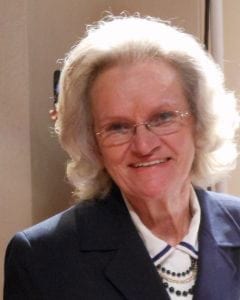Nothing prepares families for the myriad of tests with strange sounding names that are required when they start to look for solutions to the problems brought about by a member’s physical symptoms.
Medical-speak often leaves them feeling frightened and intimidated. Medical jargon makes it difficult for them to understand what they are being told, and when they ask questions, they receive answers from doctors who are using even more medical terms. It is as if they have entered a strange land where people are speaking a different language.
This can be compounded when dealing with a rare disease. Even if parents have some previous medical experience, the fact that they have been given the name of a condition they have never heard of can leave them feeling overwhelmed. Even if they have watched many of the medical shows on television, they have never heard some of the words they are learning as they plunge into the world of tests and new revelations.
While trying to remember what they learned about basic anatomy and physiology during their school years, many feel alarmed and frustrated. As I heard one mother say, “You don’t know what you don’t know, and you don’t know what you are supposed to be asking.”
Our bodies are so complex, that doctors spend many years studying in order to be qualified to treat us, and then they spend many more hours staying up to date with new discoveries and findings. How can a layman grasp all of the things they are being told, while they are also emotionally involved?
Sometimes frightening questions pop into a parent’s head while lying awake in bed in the middle of the night wondering how they will be able to do all that is necessary for their child.
When they hear doctors, nurses, therapists and technicians using medical terms which are part of their everyday vocabulary, parents feel like they are being left out of conversations. Thus, they often spend the initial months and/or years after the diagnosis on a learning curve. Unless they tell those in the medical community to slow down and explain things to them, they can leave each encounter feeling confused and dissatisfied. When doctors release test results to parents, those reports usually use medical terms, causing some to think that they should carry along a medical dictionary.
Even though some medical workers are aware of that fact and are quick to explain things to patients in plain language, parents frequently do not receive adequate answers to their questions. And they are surprised by how many different specialists will ask them questions about their child as they repeat the same answers over and over again. Who knew there were so many different specialties?
Anyone who is abruptly thrown into an environment, with which they are not familiar, can identify with the feeling of being overwhelmed.
These parents are faced with the task of making decisions about a course of treatment while trying to cope with the emotional reactions of confronting a complex rare disease. Fortunate are those who receive counsel from geneticists cognizant of these facts, so they carefully explain the meaning of the diagnosis in common language.
 About the Author: Denise Crompton and her husband Bob, raised four children, the oldest of whom, Kelley, had the rare disease of Mucolipidosis 3. The many years that they spent caring for Kelley prompted Denise to write two books. Kelley’s Journey: Facing a Rare Disease with Courage chronicles their own daughter’s experiences. Diagnosis: Rare Disease includes some of the experiences of 12 more families, and was written to help raise awareness of all that is involved in living with rare conditions. All of Denise’s royalties go toward rare disease research. The Cromptons live in New Hampshire, where they spend their retirement years enjoying their many grandchildren, while still reaching out to help families with rare diseases.
About the Author: Denise Crompton and her husband Bob, raised four children, the oldest of whom, Kelley, had the rare disease of Mucolipidosis 3. The many years that they spent caring for Kelley prompted Denise to write two books. Kelley’s Journey: Facing a Rare Disease with Courage chronicles their own daughter’s experiences. Diagnosis: Rare Disease includes some of the experiences of 12 more families, and was written to help raise awareness of all that is involved in living with rare conditions. All of Denise’s royalties go toward rare disease research. The Cromptons live in New Hampshire, where they spend their retirement years enjoying their many grandchildren, while still reaching out to help families with rare diseases.
Do you have a rare disease story? Share your stories, thoughts, and hopes, with the Patient Worthy community!







